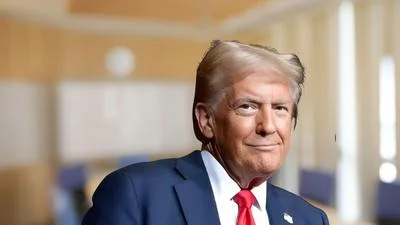The Congressional Record is a unique source of public documentation. It started in 1873, documenting nearly all the major and minor policies being discussed and debated.
“VOTE NO ON PNTR” mentioning the U.S. Dept of State was published in the Extensions of Remarks section on pages E723 on May 15, 2000.
The publication is reproduced in full below:
VOTE NO ON PNTR
______
HON. LANE EVANS
of illinois
in the house of representatives
Monday, May 15, 2000
Mr. EVANS. Mr. Speaker, today I oppose granting Permanent Normal Trade Relations with China. It is clearly the wrong step to take if we want meaningful change from China on a wide variety of issues that are important to all Americans.
It must be noted that Chinese leaders have broken every previous trade agreement they have signed with the United States. What makes us believe that this time will be any different? During the last decade alone, China violated four major trade agreements: the 1992 Memorandum of Understanding on Prison Labor, the 1992 Memorandum of Understanding on Market Access, the 1994 Bilateral Agreement on Textiles, and the 1996 Bilateral Agreement on Intellectual Property Rights. Most recently, after signing the current bilateral in November, China turned its back on the agreement. Their Chief Negotiator stated, ``it is a complete misunderstanding to expect this grain to enter the country . .
. Beijing only conceded a theoretical opportunity for the export of grain.'' These governments are not ventures in theory--these agreements should be unbreakable.
Another argument for supporting PNTR is that US businesses will introduce the Chinese people to democracy and human rights. However, when we look at how Chinese workers are already being treated by corporations such as Wal-Mart, Timberland, Nike, Alpine and others, it becomes clear that is not the case. Wal-Mart and Nike's operations in China have become synonymous with child labor, forced labor and hazardous working conditions. These are not the values we want to bring to other countries. By granting PNTR, we give up any hope of influencing the PRC's policy on worker and human rights. We are inviting US companies to leave the US to produce goods in a country which does not support a minimum wage, basic safety regulations, or the right of association. Let's export our values--not our jobs.
It is not only workers who are oppressed by China. Religious groups too often are denied basic human rights. Recent examples include prison sentencing of Falun Gong members without trials for undetermined sentences. The United States Catholic Conference expressed their opposition to PNTR by stating, ``. . . we have urged that the well-
documented violations of the Chinese peoples' human rights, and notably their lack of true religious freedom be seriously addressed and reversed.'' Religious freedom is one of the most important freedoms guaranteed to US citizens. Let us not reward a country who so blatantly disregards this right.
The agreement also omits any statement on environmental protections. Having just celebrated the 30th anniversary of Earth Day in the United States, we should continue to be vigilant in our pursuit of a healthy international ecosystem. We would send a message that protecting the world's natural resources and pollution control are not important if we agree to PNTR. According to the Sierra Club, ``nothing was done in the WTO/PNTR package to mitigate the increased risks to endangered wildlife.'' They also note the State Department's 1999 Report of China's Human Rights Practices, ``the China Development Union (which works for environmental and political reforms) virtually was shut down by arrests of its members during the year.'' This agreement is not just an affront against the environment, but also against the Chinese who press the government to protect their natural resources.
Some members of the agricultural community are looking favorably on this agreement. However, it should be noted that China already has had overall agricultural surpluses and is still producing a glut of agricultural goods. China has already backtracked on tariff and market-
access portions of the bilateral. The PRC will not allow American farmers to participate in a competitive marketplace. Charles McMillion, a founder of the Congressional Economic Leadership Institute, wrote,
``China's agricultural glut is likely to continue with WTO membership.
. . .'' Even the National Farmers Union, opposes giving this permanent status: ``We must not unilaterally disarm our Nation's ability to respond if China fails to comply with commitments contained in this agreement.'' Make no mistake, international markets are critical to our farmers. However, we must not engage in agreements with countries who frequently renege on past agreements and who do not believe in the type of fair trade that will benefit American agriculture.
President Clinton has said that this is an essential national security issue. He is right--but he is on the wrong side of the argument. There are just too many incidents where China has acted egregiously against American security interests. In recent years, China fired several live missiles in the Taiwan Straight. At the same time, the PRC has supplied other rogue nations with weapons that could be used against U.S. soldiers abroad. Already, five major military organizations--the American Legion, the Fleet Reserve Officers Association, the National Reserve Association, the Warrant Officers Associations, and the Reserve Officers Association--have publicly agreed that it would not be in the best interest of the United States to grant PNTR.
This vote is one that will have repercussions for generations to come. We can take this opportunity to stand for military security, human and worker rights, the environment, and fair market access, or we can choose to give a ``blank check'' to China, allowing them to dictate a lower standard. I urge my colleagues to reject PNTR.
____________________








